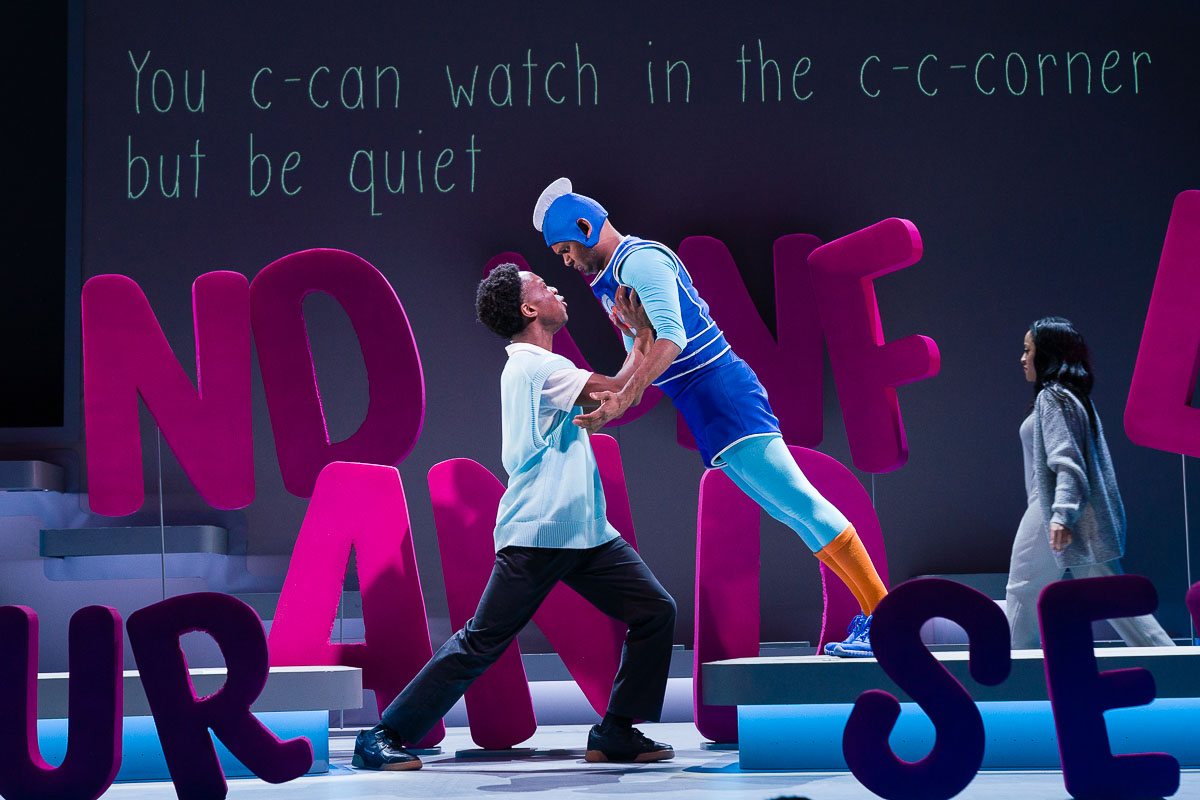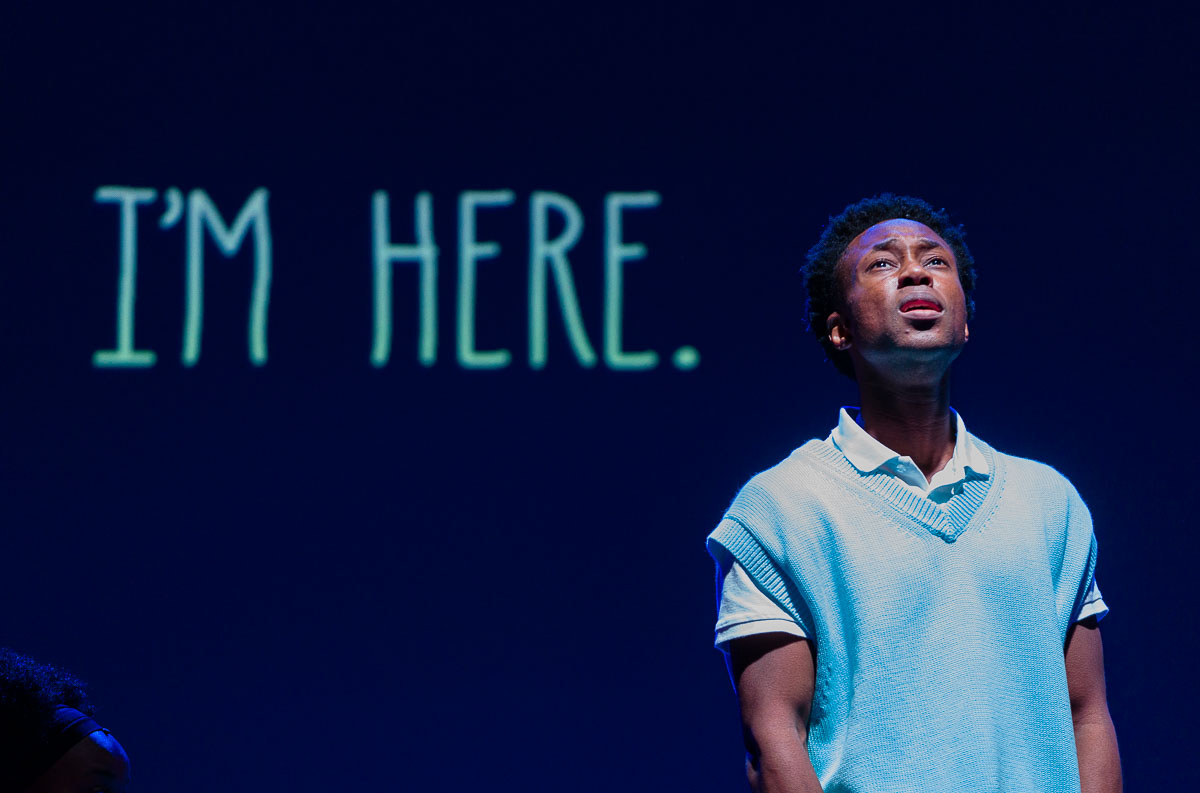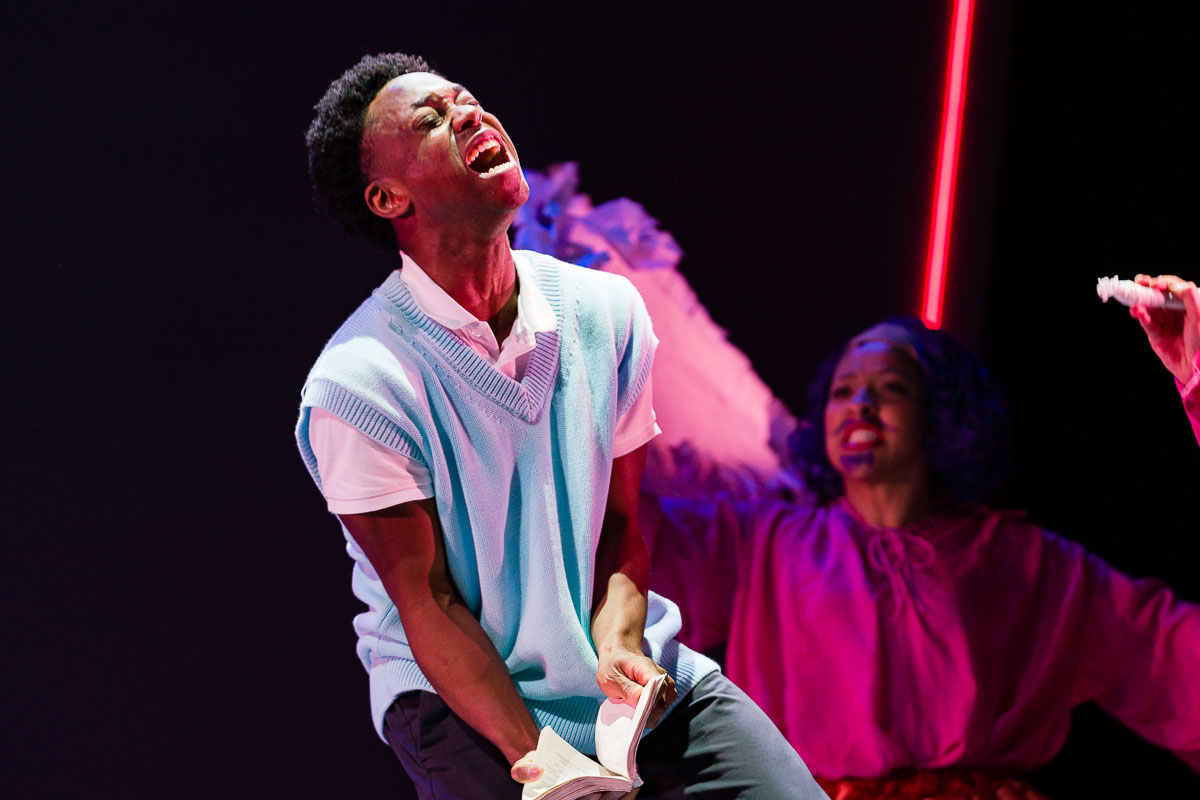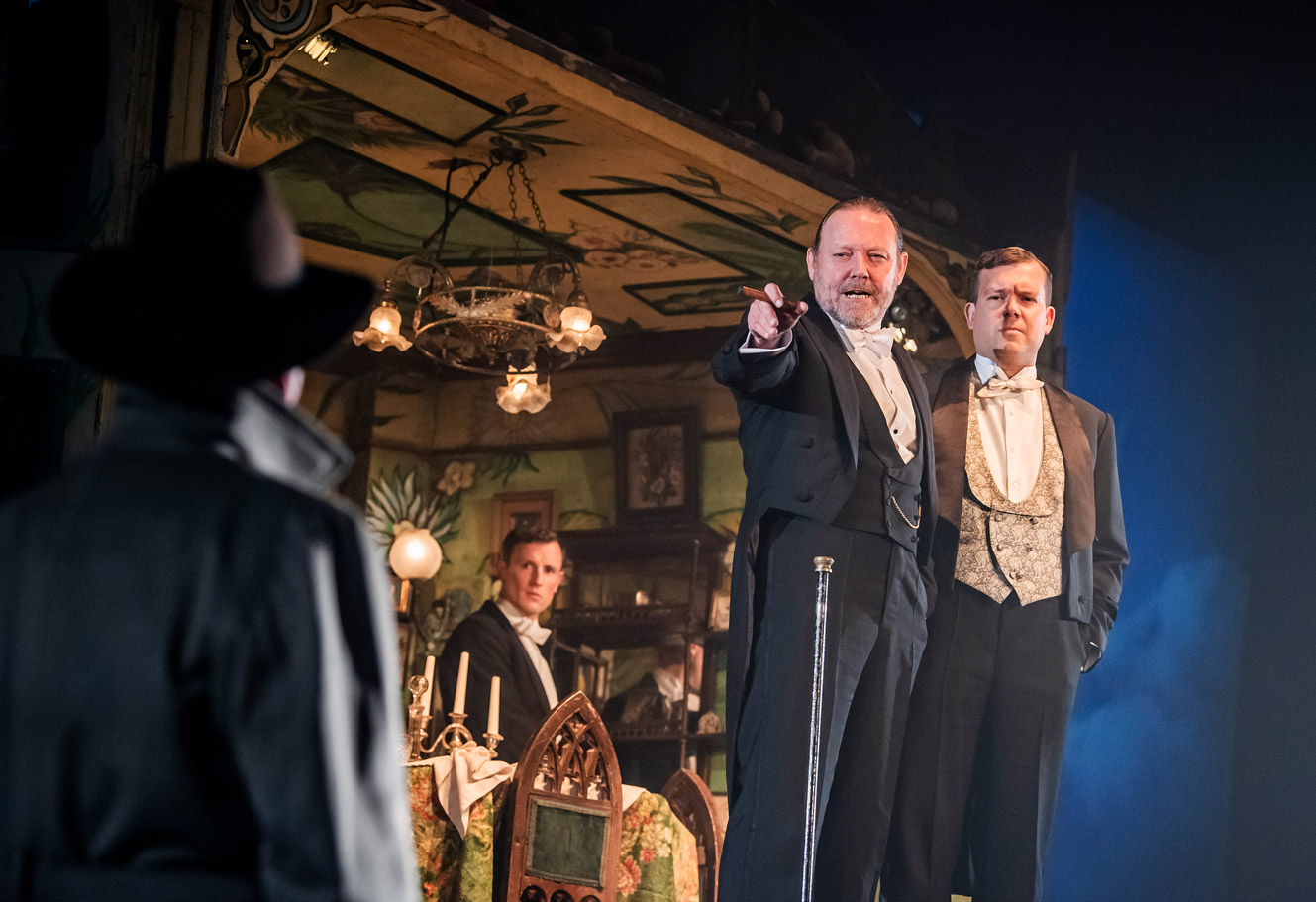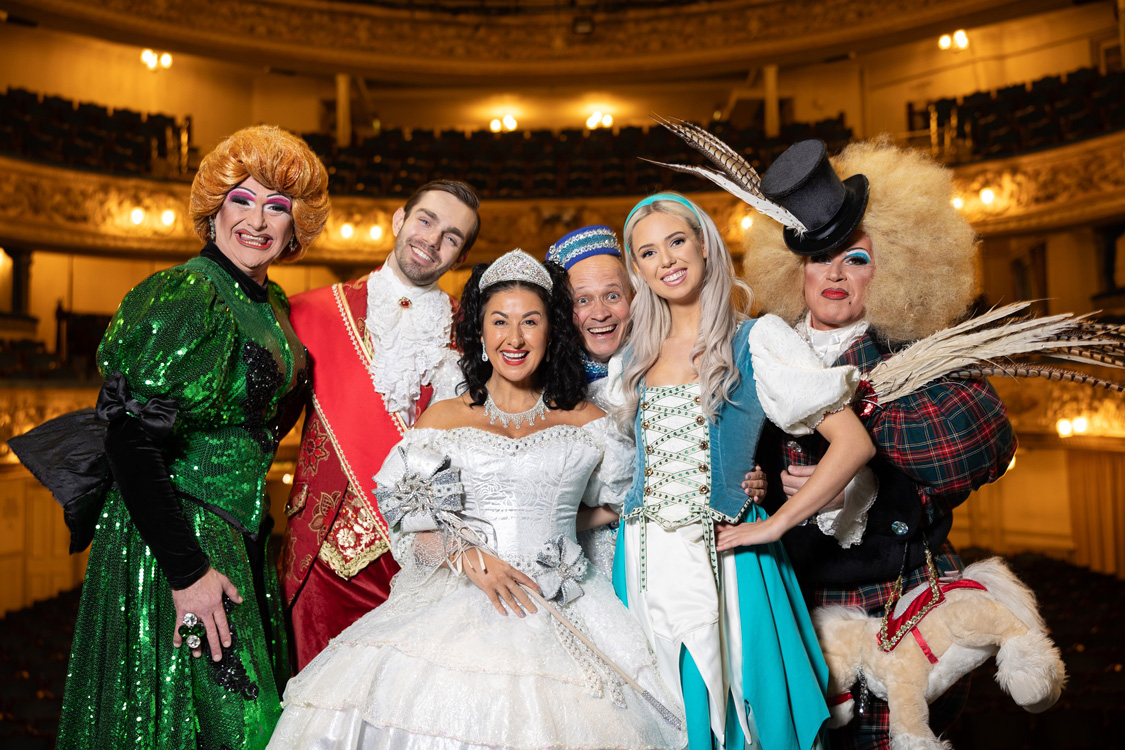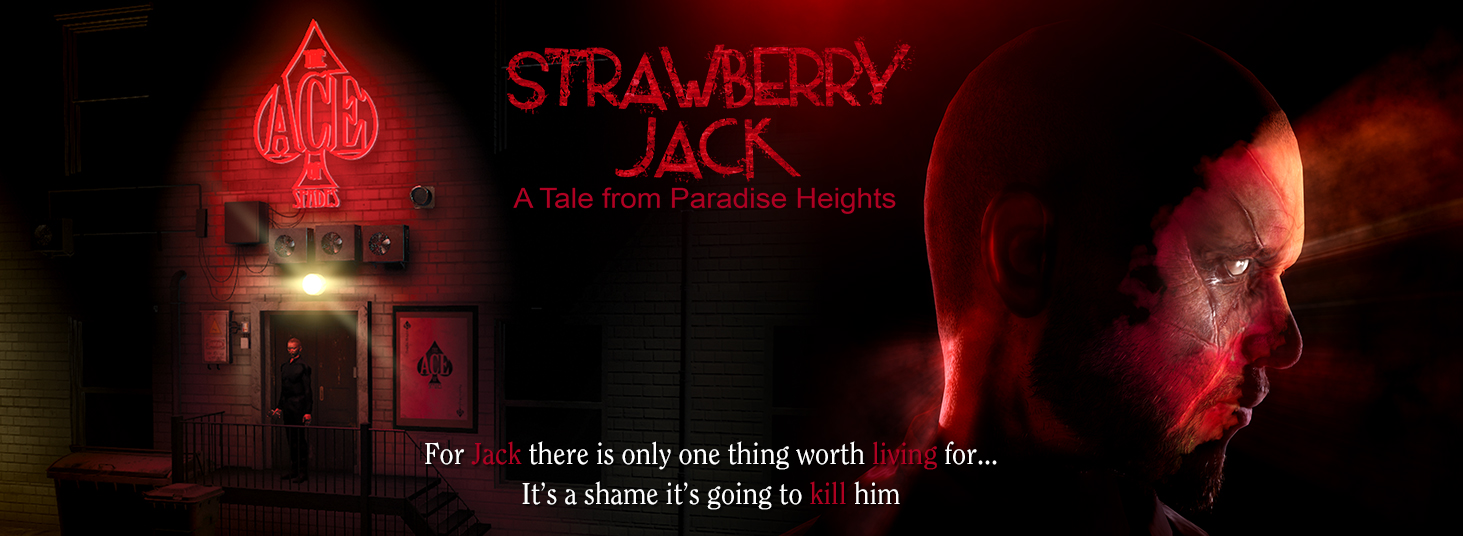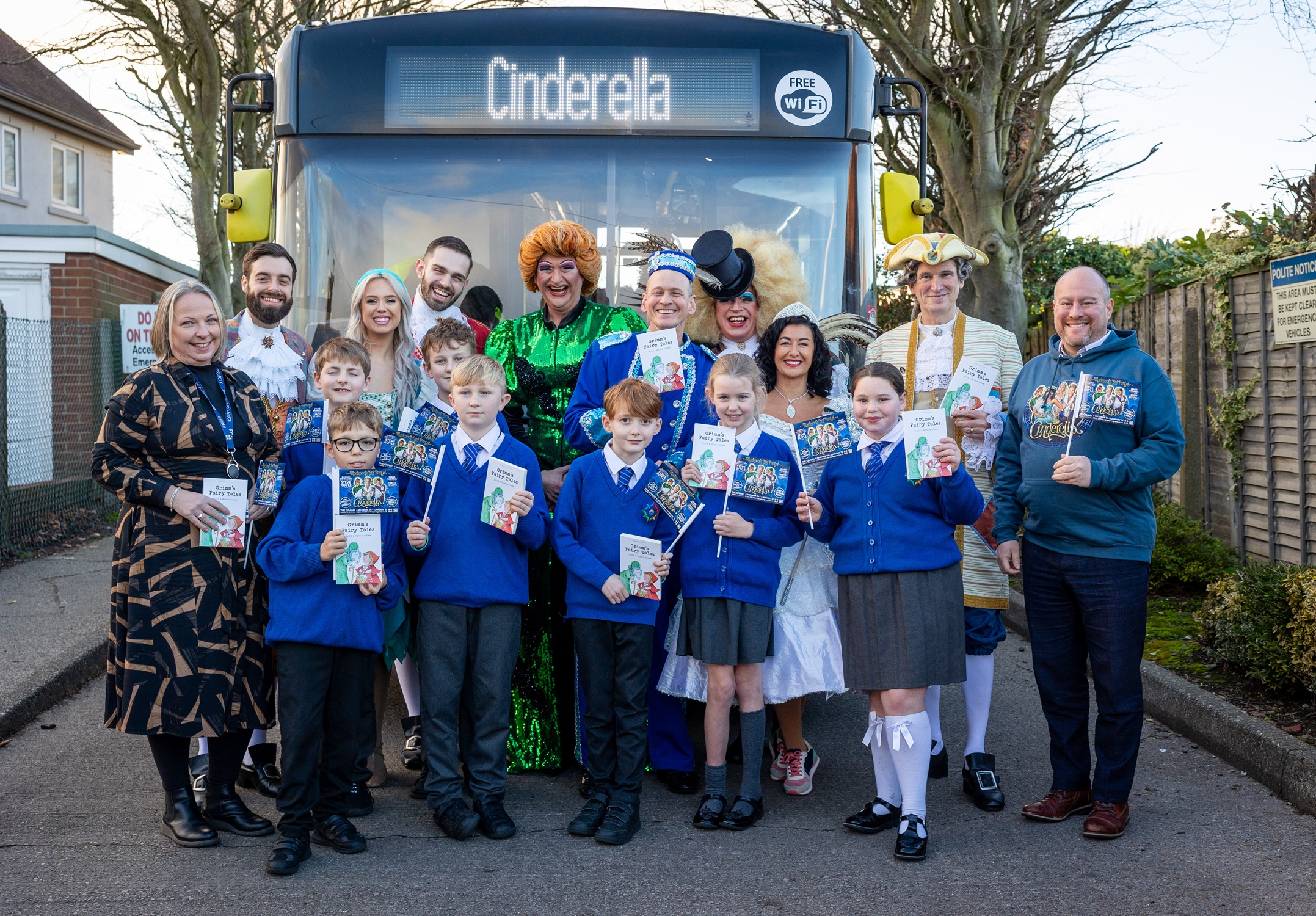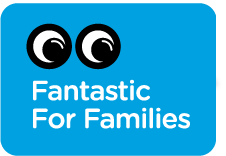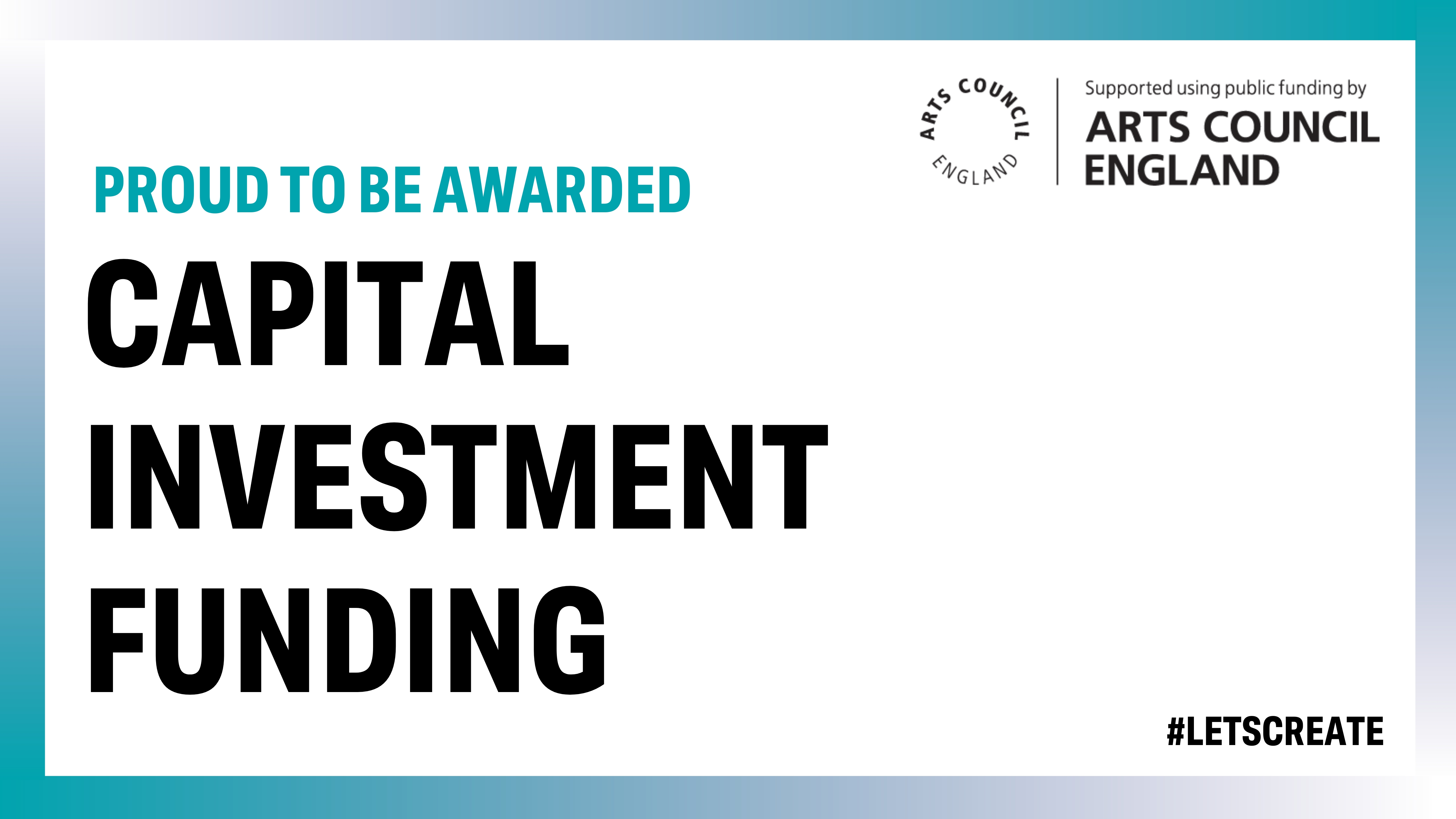- STAFF Pick
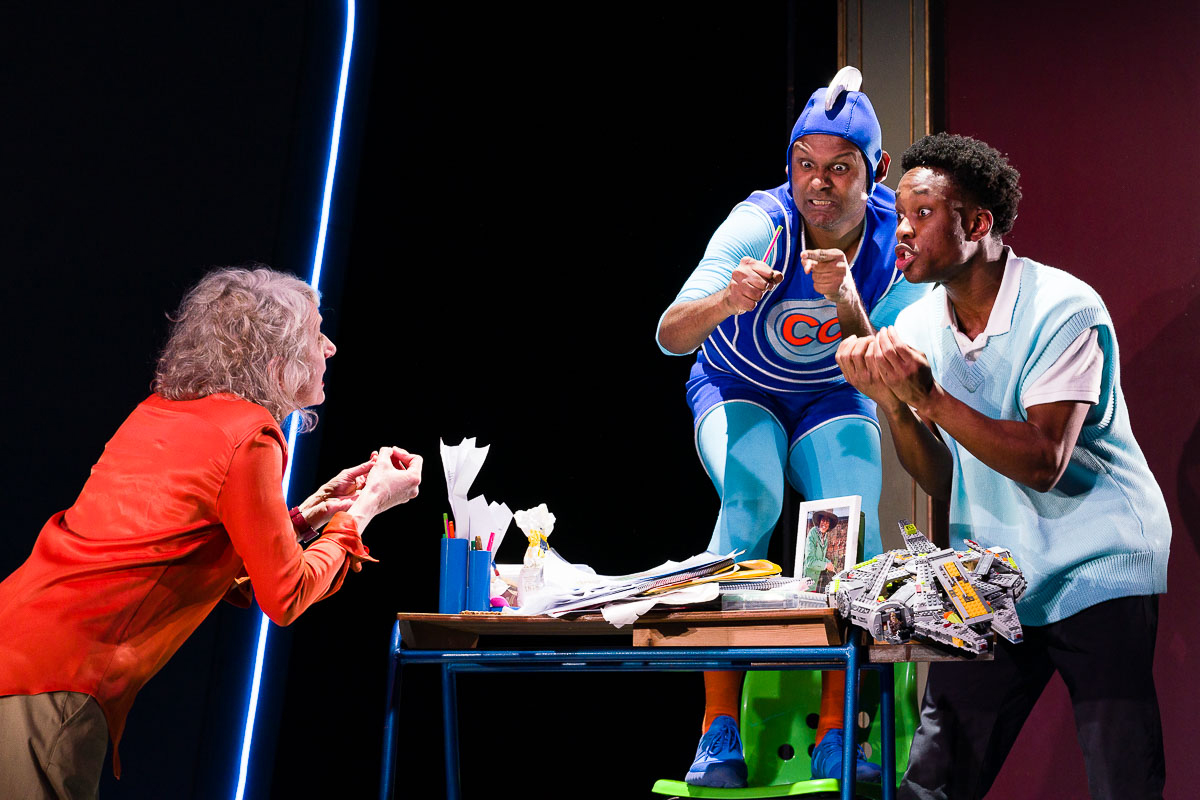
Wonder Boy is a Grand show to shout about this October
6 min read
Share
Everyone’s talking about the ‘audaciously inventive’ production of WONDER BOY coming to Blackpool Grand Theatre from Wednesday 9 October to Saturday 12 October. It’s a **** of a show!
The heartwarming Wonder Boy by Ross Willis is packed with playful humour, dazzling visuals and thrilling original music to tell the inspiring tale of the power of communication. Sonny is twelve. Living with a stammer, he’s finding his way in a world ruled by vicious vowels, confusing consonants and the biggest beast of them all – small talk. Sonny’s only friend is Captain Chatter – a comic book hero of his own creation. When Sonny is cast in the school production of Hamlet by the Headteacher, he finds the real heroes are closer than he thinks…
This innovative production includes live creative captioning on stage throughout and doesn’t shy away from the extreme language that some teenagers use to express themselves in this modern world.
Nancy Durrant spoke to the Olivier award-winning director of Wonder Boy, Sally Cookson, about the critically acclaimed production, which scooped the Writers’ Guild Award for Best Play in 2023, before it comes to Blackpool next month.
How did your production of Wonder Boy originally come about?
‘I was invited to a new writing festival at the Bristol Old Vic Theatre School pre-pandemic in which Ross Willis’ play was presented. It jumped out at me as a piece of unique writing, and I was attracted to the way Ross combined an absurd world with the very real. It made me laugh and cry. I contacted him and then Ross and I got to know each other during the pandemic via delightful phone calls where we’d just talk about anything and everything.’
The play is about Sonny, a young boy who stammers. Ross Willis has written movingly about the frustration that can come with that – how did you bring that into the structure of the show?
‘This is at the heart of the piece. Ross calls it ‘the great inner operatic pain that comes from not being able to be seen or express yourself’. It was essential that we found a way of bringing all elements of the production together to illustrate and highlight Sonny’s plight. Music is especially important in helping with this and Benji Bower’s composition manages to get right inside the character’s head. But casting an actor who is able to portray the character’s trauma is key. Understanding what causes Sonny to behave in the way he does and identify every moment of his thought process is vital. Some of Sonny’s darkest moments happen when there is no text, so being able to identify how his pain manifests physically is important too.’
Can you talk about the use of creative captioning in the show?
‘The play is about what happens when a person communicates differently and the challenges they face when fluent speech is the expected societal norm. It felt entirely natural to include Creative Captions as part of the overall design of the show to tap into the major theme of communication. We don’t just display the words on a small digital strip positioned either to the left or right of the stage, we ensure that all the words spoken are visually central to the piece.’
Wonder Boy deals with quite extreme mental health issues, including suicide; can theatre do that particularly well?
‘My experience is that theatre is a wonderful place to interrogate the stuff that frightens us as humans. And to ask those questions safely in a rehearsal room, and to share that with an audience is what theatre does best. A lot of plays written for young people shy away from themes such as this, but Ross approaches the subject with honesty and integrity. He understands what young people endure and gives voice to their suffering in an imaginative way. Theatre is a space to gather together to explore human behaviour, and hopefully come away with a bit more understanding of why we do the things we do.’
The play is clearly for young people; it’s also very sweary…
‘Oh, we had so many discussions about the sweariness. It has taken us around and about and back to where we started, which is why we’ve changed very little of it. Ross is quite right – most young people swear a lot. It has become part of the way they communicate. Some adults get quite upset about the amount of swearing in the show, no young people do. And the play really is for teenagers. Getting teenagers into the theatre is very difficult, and I think Ross has absolutely found a way of engaging them – by telling a beautiful and important story and using an extreme version of the language they identify with.’
Ross Willis’ Wonder Boy directed by Sally Cookson is at Blackpool Grand Theatre from Wednesday 9 October to Saturday 12 October with evening and matinee performances.
Tickets from £18.50 with concessions/group/schools rates available and a FREE Education Pack available to download from the Grand Theatre website.
There are also special discounted tickets available for 18 to 26-year-olds as part of the national ticket scheme to encourage young adults to experience all forms of live theatre.
Contains strong language, references to parental death and suicide. Age Guidance 12+
